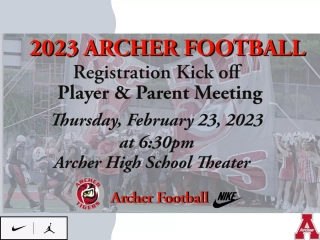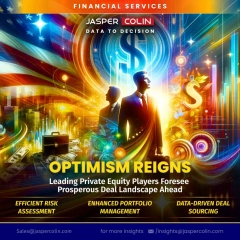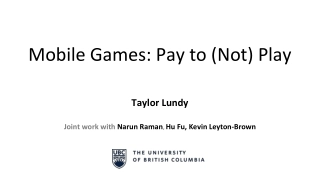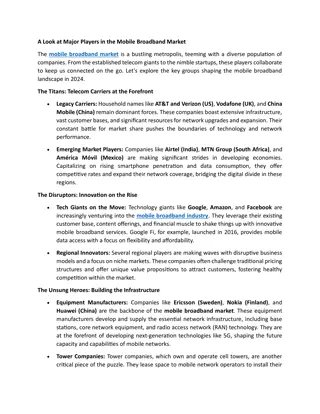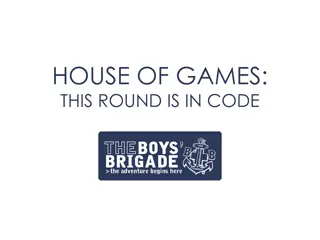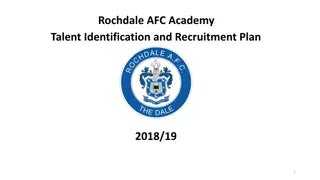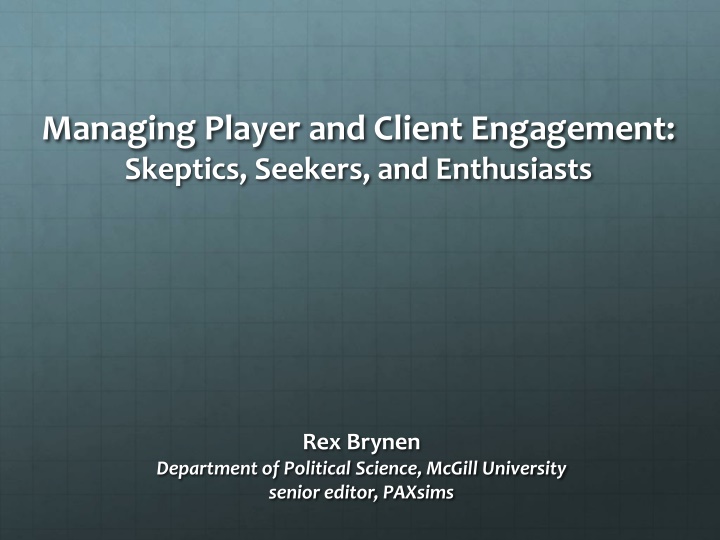
Managing Player and Client Engagement: Strategies for Skeptics, Seekers, and Enthusiasts
Explore effective ways to engage different player types, including skeptics, seekers, and enthusiasts, in game design and facilitation. Understand their unique motivations and preferences to enhance overall engagement and satisfaction.
Download Presentation

Please find below an Image/Link to download the presentation.
The content on the website is provided AS IS for your information and personal use only. It may not be sold, licensed, or shared on other websites without obtaining consent from the author. If you encounter any issues during the download, it is possible that the publisher has removed the file from their server.
You are allowed to download the files provided on this website for personal or commercial use, subject to the condition that they are used lawfully. All files are the property of their respective owners.
The content on the website is provided AS IS for your information and personal use only. It may not be sold, licensed, or shared on other websites without obtaining consent from the author.
E N D
Presentation Transcript
Managing Player and Client Engagement: Skeptics, Seekers, and Enthusiasts Rex Brynen Department of Political Science, McGill University senior editor, PAXsims
required reading (Weuve et al, 2004) (Downes-Martin 2014)
engagement engagement for purpose Are players on board with the purpose and design of the game? engagement for play Are players engaged by, and immersed in, the game s narrative in a way that generates realistic choices and dynamics?
player types Bah humbug! skeptics doubtful that the purpose or design of the game is appropriate or worthwhile critical of game adjudication and facilitation That s interesting seekers open to using a game methodology to explore key questions interested to use the game to generate insights into problems and issues enthusiasts committed to running a game (whether or not it might be the best approach) eager to play (and potentially losing sight of limitations and weaknesses) Is it my turn yet?!?
skeptics Explain game design choices in ways that appeal to their expertise and choices. Coopt, if possible. Build on their criticism, but try to make it constructive. Watch they don t get bored during game play (if they do, they ll only get more negative). Immersion in the game narrative helps.
enthusiasts Try to encourage them to play devil s advocate, building on their experience. Use them to drive atmosphere, narrative engagement. Avoid frustrating them with slow, complexes processes or frustrating lack of control. Assign to roles where their likely game behaviour will be constructive.
seekers Make sure they have time for reflection. How will you capture their insights? Avoid game dynamics that might stifle their analysis. the dangers of hierarchy and group think
Killer 13% Achiever: 47% Explorer : 67% Socializer: 73% Bartle taxonomy of player types (1996)
some real-life examples Do you really need a game for that? Yes, it s important, but no one will admit it (ATLANTIC COUNCIL) They won t be seen in the room together (CHATHAM HOUSE, ATLANTIC COUNCIL) What, we re expected to work? (UNRWA) But I m a distinguished scholar! (CHATHAM HOUSE) gamer mode (BRYNANIA, ISIS CRISIS) You re not supposed to break the planning scenario! (RCAT) students and junior officers vs diplomats and senior officers
angry/annoyed/frustrated players as deliberate game design marginalized refugees (CHATHAM HOUSE) deep in BRYNANIA asymmetrical information (ISIS CRISIS, ATLANTIC COUNCIL)

